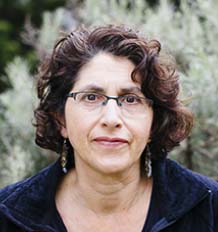What is the future of farming?
Agriculture today is extraordinarily productive, although sadly many people are chronically hungry, malnourished or obese. And the way we farm also takes an increasing toll on the environment. Farming emits a third of all greenhouse gases and uses 70 percent of freshwater resources. It is a major contributor to deforestation and biodiversity loss, and has led to the loss of soil fertility in agricultural lands. How can we produce enough food for the future while protecting the planet? Healthy bee populations are a key element. Bees pollinate 75 percent of crops in the world, but their populations are suffering from a variety of threats. Berkeley conservation biologist Claire Kremen has demonstrated how restoring natural vegetation where bees can thrive preserves biodiversity while it maintains healthy crop yields. Diversified farming too -- growing multiple crops instead of monoculture -- improves soil fertility and requires less pesticides. Together, these practices can maintain productivity while using less energy, water and pesticides -- a boon to climate stability.
 Claire Kremen
Claire Kremen
Claire is an ecologist who develops conservation and sustainable management plans, considering both protected areas and the working lands matrix around them. Her current research focuses on exploring the benefits, costs, and barriers to adoption of diversified farming systems, and on restoring pollination and pest control services in intensively farmed landscapes, using both predictive modeling and field studies. Read more.
